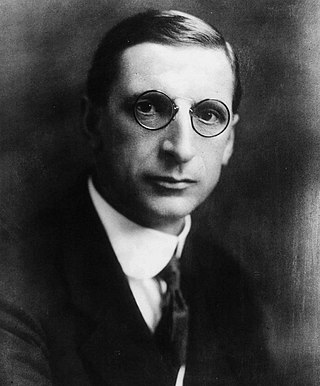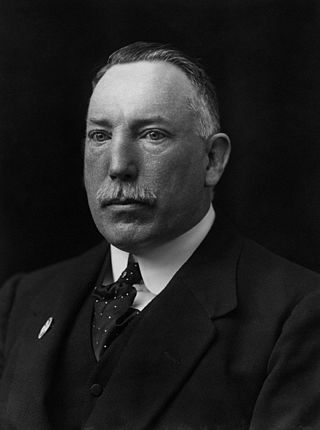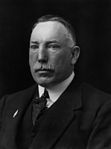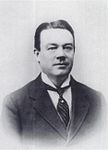
The Irish component of the 1918 United Kingdom general election took place on 14 December 1918. It was the final United Kingdom general election to be held throughout Ireland, as the next election would happen following Irish independence. It is a key moment in modern Irish history, seeing the overwhelming defeat of the moderate nationalist Irish Parliamentary Party (IPP), which had dominated the Irish political landscape since the 1880s, and a landslide victory for the radical Sinn Féin party. Sinn Féin had never previously stood in a general election, but had won six seats in by-elections in 1917–1918. The party had vowed in its manifesto to establish an independent Irish Republic. In Ulster, however, the Unionist Party was the most successful party.

North Down is a parliamentary constituency in the United Kingdom House of Commons. The current MP is Alex Easton, elected at the 2024 United Kingdom general election.
Armagh or County Armagh is a former county constituency in the House of Commons of the United Kingdom. It was a two-member constituency in Ireland from 1801 to 1885 and a single-member constituency in Northern Ireland from 1922 to 1950. It was replaced in boundary changes in 1983.

The 2005 United Kingdom general election was held on Thursday 5 May 2005, to elect 646 members to the House of Commons. The governing Labour Party led by Prime Minister Tony Blair won its third consecutive victory, with Blair becoming the second Labour leader after Harold Wilson to form three majority governments. However, its majority fell to 66 seats; the majority it won four years earlier had been of 167 seats. The UK media interpreted the results as an indicator of a breakdown in trust in the government, and especially in Blair.

The 1945 Northern Ireland general election was held on 14 June 1945. The election saw significant losses for the Ulster Unionist Party, though they retained their majority.

The 1929 Northern Ireland general election was held on 22 May 1929. Like all previous elections to the Parliament of Northern Ireland, it produced a large majority for the Ulster Unionist Party. It was the first held after the abolition of proportional representation and the redrawing of electoral boundaries to create single-seat constituencies. As with the rest of the United Kingdom, this has made it more difficult for independent and minor party candidates to win seats.
This is an overview of United Kingdom general election results since 1922. The 1922 election was the first election in the new United Kingdom of Great Britain and Northern Ireland, after the creation of the Irish Free State removed Southern Ireland from the UK.

The 1986 Northern Ireland by-elections were fifteen by-elections held on 23 January 1986, to fill vacancies in the Parliament of the United Kingdom caused by the resignation in December 1985 of all sitting Unionist Members of Parliament (MPs). The MPs, from the Ulster Unionist Party, Democratic Unionist Party and Ulster Popular Unionist Party, did this to highlight their opposition to the Anglo-Irish Agreement, signed the month before.
In the United Kingdom, general elections occur at least every five years. About 650 constituencies return a member of Parliament. Prior to 1945, electoral competition in the United Kingdom exhibited features which make meaningful comparisons with modern results difficult. Hence, unless otherwise stated, records are based on results since the 1945 general election, and earlier exceptional results are listed separately.

The 1922 United Kingdom general election in Northern Ireland was held on 15 November 1922. There were ten constituencies, seven single-seat constituencies with elected by FPTP and three two-seat constituencies with MPs elected by bloc voting. Only two of the constituencies had contested elections.

The 1923 United Kingdom general election in Northern Ireland was held on 6 December as part of the wider general election. There were ten constituencies, seven single-seat constituencies with elected by FPTP and three two-seat constituencies with MPs elected by bloc voting. Only three of the constituencies had contested elections.

The 1924 United Kingdom general election in Northern Ireland was held on 29 October as part of the wider general election in the United Kingdom. There were ten constituencies, seven single-seat constituencies with elected by FPTP and three two-seat constituencies with MPs elected by bloc voting.

The 1929 United Kingdom general election in Northern Ireland was held on 30 May as part of the wider general election. There were ten constituencies, seven single-seat constituencies with elected by FPTP and three two-seat constituencies with MPs elected by bloc voting.

The 1935 United Kingdom general election in Northern Ireland was held on 14 November as part of the wider general election. There were ten constituencies, seven single-seat constituencies with elected by FPTP and three two-seat constituencies with MPs elected by bloc voting.

The 1945 United Kingdom general election in Northern Ireland was held on 5 July as part of the wider general election. There were ten constituencies, seven single-seat constituencies with elected by FPTP and three two-seat constituencies with MPs elected by bloc voting.

The 1950 United Kingdom general election in Northern Ireland was held on 23 February as part of the wider general election. The Representation of the People Act 1948 reorganised constituencies: all MPs were now elected single-seat constituencies using FPTP, ending the two-seat constituencies which had been in place till then, and the university constituency of Queen's University of Belfast was abolished.
The 1951 United Kingdom general election in Northern Ireland was held on 25 October as part of the wider general election with 12 MPs elected in single-seat constituencies using first-past-the-post.
The 1955 United Kingdom general election in Northern Ireland was held on 26 May as part of the wider general election with 12 MPs elected in single-seat constituencies using first-past-the-post.

The February 1974 United Kingdom general election in Northern Ireland was held on 28 February with 12 MPs elected in single-seat constituencies using first-past-the-post as part of the wider general election in the United Kingdom.









